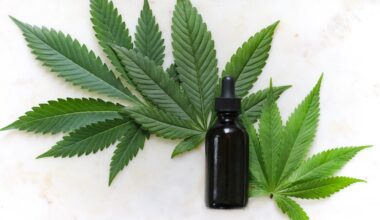Because there is a dwindling number of states that haven’t legalized medical and/or recreational marijuana, it is easy to be fooled into believing opportunities to get a cannabis business license would likewise be shrinking.
Opportunities abound, however.
The question is, where?
Often in mature markets such as California, Colorado, Michigan, Oregon and Washington state, many marijuana businesses that initially thrived are now struggling.
The owners of distressed businesses often put their licenses up for sale, presenting opportunities to entrepreneurs and investors aspiring to break into or expand in the marijuana industry.
While many cannabis businesses with potential can be had on the cheap, others might pose significant risk to their new owners.
How do you distinguish between a diamond in the rough and a disaster?
Seattle-based Heidi Urness and New Orleans-based Rudy Cerone, attorneys with the McGlinchey law firm, walk the MJBizDaily audience through the process:
How do businesses end up getting “distressed” in the first place?
Rudy Cerone: The main reasons businesses become distressed is because they don’t know the market.
They spend too much money on capex (capital expenditures), on fixed expenses, on operating expenses, but they don’t know what their revenue streams are going to be.
They’re scaling up, and their revenue stream can’t support their ongoing operations.
So, they don’t know their market.
It’s probably the biggest reason why a business would start to fail.
Heidi Urness: A lot of folks in the cannabis industry spend a lot of money without understanding what the return is going to be.
We see astronomical amounts spent on build-outs and similar things before you even see any revenue at all in some cases.
Where can aspiring license buyers find distressed businesses for sale?
Heidi Urness: When it comes to the licenses, it’s a state-specific and municipality-specific game.
There are some websites that will list licenses for sale, but that’s not the same as just listing a property for sale.
It’s very difficult to find a distressed license.
Some folks will make Craigslist ads or go on various platforms that are starting to advertise this, because it’s hard to find a purchaser for a license because of all the nuance and due diligence that needs to go into it.
Folks do get desperate and will post their licenses on various platforms, especially ones that are popping up, which are really no more than just website frames someone puts up.
Otherwise, you really have to have your finger on the pulse of the industry.
Are there some states where you are more likely to find distressed assets more than others?
Heidi Urness: We see a lot in Oregon and Michigan.
That is largely born of the fact that when they first stepped into the cannabis industry – the state as a whole – they had unlimited numbers of licenses.
So there was just a huge amount of licenses, a huge amount of competition, and a lot of people were just squeezed out by economic factors, not by anything that they did wrong, no violations on the licenses.
So, where you see that oversaturation of licenses and then the attrition, you’ll know that there’s probably some licenses hitting the secondary market.
What are the most important things that someone seeking to buy cannabis business licenses needs to know about that permit?
Heidi Urness: There’s all sorts of things that you need to know about it, in terms of the obligations that it already has on it, contractually, but also its enforcement history.
You can give me a license that otherwise would be worth a million dollars, but in some states if it has two violations in the last two years, a third violation means I forfeit the license. That thing’s probably worth $10,000.
Every state has some sort of threshold where when you commit a certain amount of violations, you will eventually lose the license.
Every asset will have its own kind of unique considerations of the risks associated with it. The license is just one of them.
What you want to see from these folks is that there is no litigation. That there’s been no threat of litigation. There’s been no cease-and-desist. There’s no challenge to the intellectual property.
Because that is a risk that comes along with that particular asset, that someone could challenge.
And, ultimately, that IP could be worth nothing if it’s found that there’s superior user.
How do you vet distressed businesses that are for sale?
Rudy Cerone: If you’re looking to buy a business in distress, they would be setting up a virtual data room which has all the documents that you would need to be informed about the business.
They should hire what we call the chief restructuring officer, or someone that’s a third party who’s not emotionally invested in the business and is skilled at putting together all of the information that’s needed.
You do an NDA (nondisclosure agreement) with any prospective purchasers.
When you are vetting financials, what are you watching for?
Rudy Cerone: I like to see audited financial statements to the extent that they’ve got them.
If they’re big enough, they’re going to have audited financial statements from their CPA that says this is the profit-and-loss statement, this is the cash-flow statement, this is the balance sheet – and get those as up to date as soon possible, so you see the raw numbers.
And then you get all of the documents necessary to operate the business and licenses and that kind of stuff.
Vendor contracts are essential.
2024 MJBiz Factbook – now available!
Exclusive industry data and analysis to help you make informed business decisions and avoid costly missteps. All the facts, none of the hype.
Featured inside:
- Financial forecasts + capital investment trends
- 200+ pages and 49 charts highlighting key data figures and sales trends
- State-by-state guide to regulations, taxes & market opportunities
- Monthly and quarterly updates, with new data & insights
- And more!
If you’re looking to get into cannabis, how safe or not is it to get into it by buying a distressed license?
Rudy Cerone: As far as getting free and clear, that’s the primary way.
You’re buying assets, and not necessarily, in most cases, an operating business.
You’re buying the land, the assets to grow, the lease at which the dispensaries are operating, the inventory.
You’re bringing your own expertise in order to operate those assets as a thriving business.
You’re not acquiring the business as a going concern.
You’re usually acquiring the assets that are necessary to operate a going concern business.
If you know your market, you know your competition, you don’t overspend, and you’re experienced, and you just need the assets to expand on in a particular place, it’s probably not risky at all.
But if you’re a novice, and you’re looking to pick up mom and pop’s distressed dispensary, you’re probably going to have trouble.
This interview has been edited for content and clarity.
Omar Sacirbey can be reached at omar.sacirbey@mjbizdaily.com.
Medical Disclaimer:
The information provided in these blog posts is intended for general informational and educational purposes only. It is not a substitute for professional medical advice, diagnosis, or treatment. Always seek the advice of your physician or other qualified healthcare provider with any questions you may have regarding a medical condition. The use of any information provided in these blog posts is solely at your own risk. The authors and the website do not recommend or endorse any specific products, treatments, or procedures mentioned. Reliance on any information in these blog posts is solely at your own discretion.






